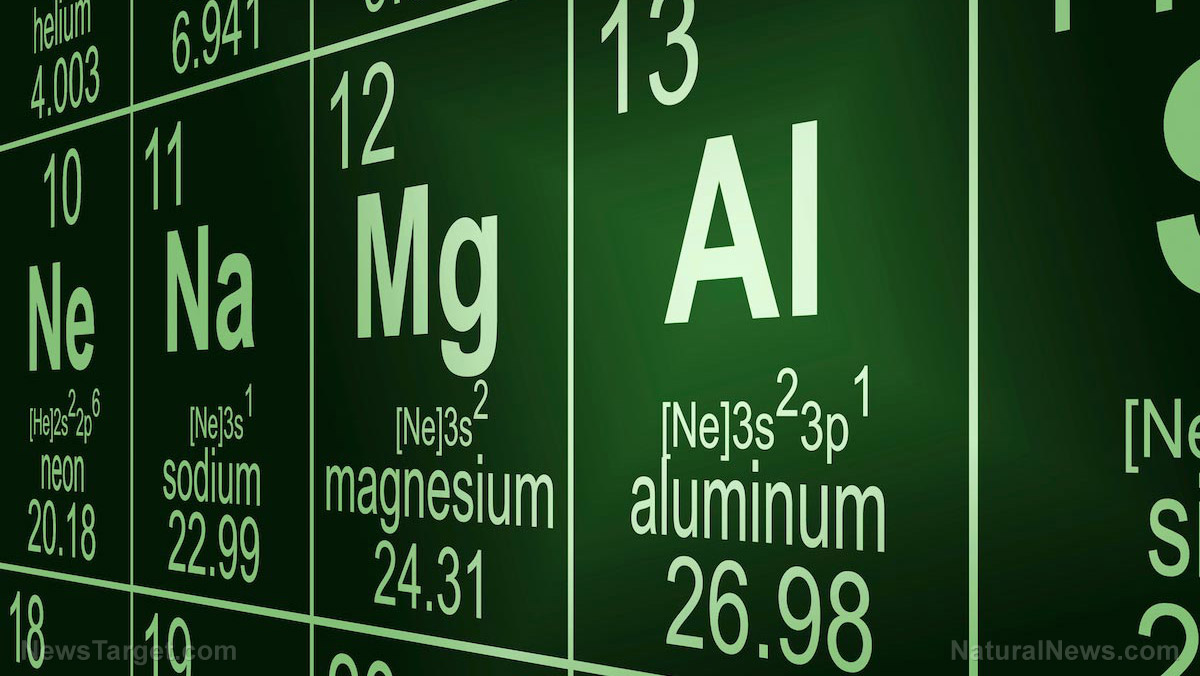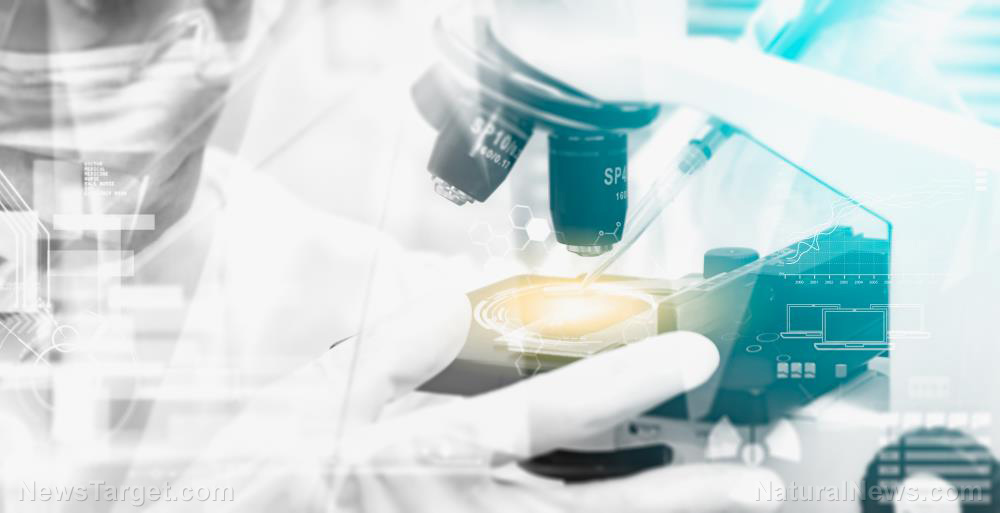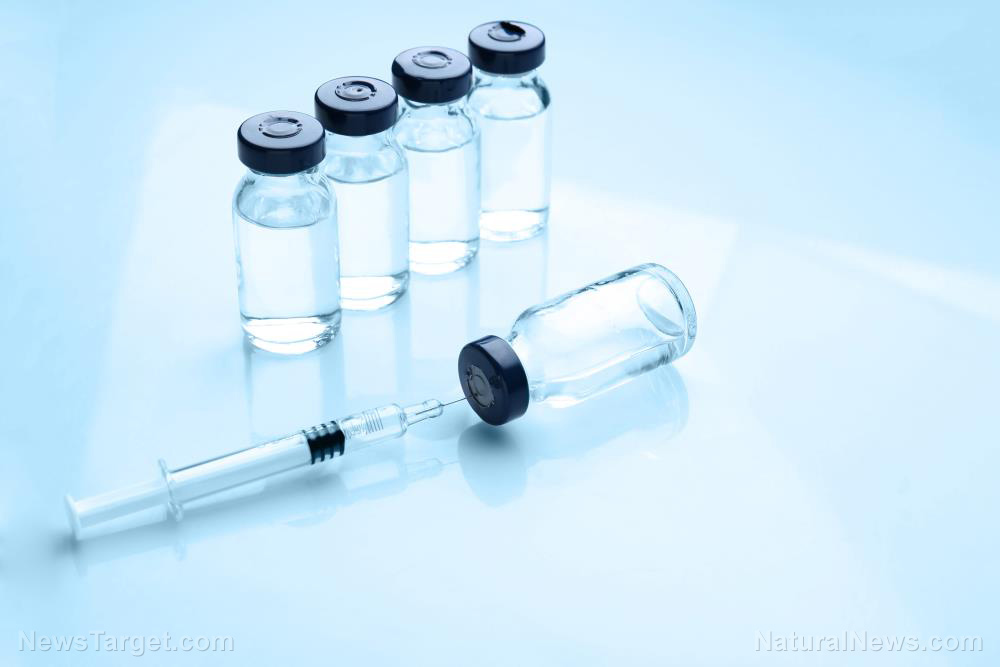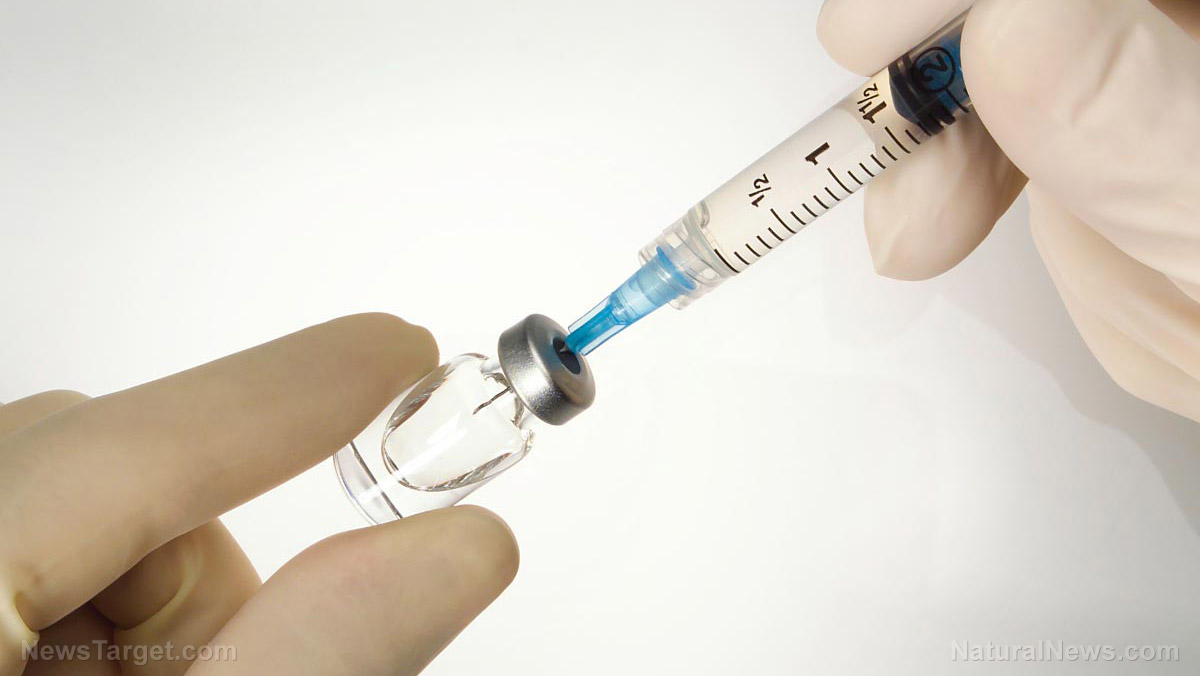Are your children safe from toxic aluminum exposure?
12/11/2019 / By Isabelle Z.

You’ve childproofed your home, switched to organic food and personal care products, and generally do all you can to ensure your little ones are safe from harm. However, one danger you might have overlooked is aluminum.
That might sound like a ridiculous statement on the surface; after all, you’ve probably been wrapping your food in aluminum foil for years and you’re still alive and kicking. And that’s really the problem in a nutshell: Aluminum is so dangerous precisely because so many people believe it’s harmless and don’t think twice about it.
The truth is that aluminum is a neurotoxin that is harmful to health, and those dangers are amplified in younger people. Infants are especially vulnerable to aluminum bioaccumulation, which is bad news when you consider the high levels of absorbable aluminum that have been found in many infant formulas.
In fact, the aluminum overload many babies are subjected to can have consequences that carry out well into their adult years. A study carried out by aluminum expert Professor Chris Exley of Keele University in the UK found that aluminum levels in popular formula brands were as much as 40 times higher than those found in human breast milk and that little had changed since calls in the 1980s for the metal’s presence in formula to be reduced. In fact, an infant on the standard formula intake was found to be ingesting the equivalent of 600 micrograms of aluminum per day, which greatly exceeds the maximum daily dose recommended by the FDA.
The problem is even greater in premature babies, who are often given parenteral nutrition (PN) solutions loaded with aluminum in neonatal care, which is often followed by aluminum-containing formula once they get home. Unfortunately, the blood-brain barrier is easily for aluminum to disrupt, and these babies’ lack of GI protection means ingesting aluminum damages their gut homeostasis to the point where it’s considered a risk factor for inflammatory bowel diseases. Moreover, premature infants’ kidneys are considered functionally immature and therefore unable to excrete aluminum.
One study that followed premature infants into adolescence discovered that teens who were exposed to parenteral aluminum saw reduced bone mass in their hips and lumbar spine, putting them at risk of osteoporosis and hip fractures.
Other sources of aluminum
Even if babies aren’t getting aluminum from formula or PN, many vaccines contain aluminum adjuvants, including the newborn vitamin K shot; the package insert for the vitamin K from Pfizer even states that it “contains aluminum that may be toxic.” Many other childhood vaccines contain aluminum, and when it’s given alongside mercury, which can still be found in flu vaccines, it’s even more dangerous.
Other potential routes of aluminum exposure include municipal water supplies, aluminum cans, cooking utensils, aluminum foil, deodorants, and medications that contain the metal as an ingredient.
A 2018 study showed that people with autism spectrum disorder had consistently high levels of aluminum in their brains, while other studies have found a link between aluminum exposure and autism severity. It can also contribute to Alzheimer’s disease, one of the most devastating illnesses of our time, and could even be causing it. In a review article published in Frontiers in Neurology, Dr. Exley calls these issues a “consequence of living in the aluminum age.”
One of the biggest problems about this scenario is the fact that there is so much complacency about it. The manufacturers of vaccines and formula and regulators alike tend to be dismissive of concerns about aluminum, even though some scientists are pushing hard for change. As the most abundant metal in the Earth’s crust, aluminum is unlikely to fall out of favor in these applications thanks to its availability and affordability, which is why it’s so important for people to be aware of its neurotoxic effects and limit their exposure – especially in children and babies.
Sources for this article include:
Tagged Under: Aluminum, Alzheimer's disease, autism, infants, mental health, mind body science, neurotoxins, premature babies, toxic ingredients, toxins
RECENT NEWS & ARTICLES
COPYRIGHT © 2017 AUTISM TRUTH NEWS



















